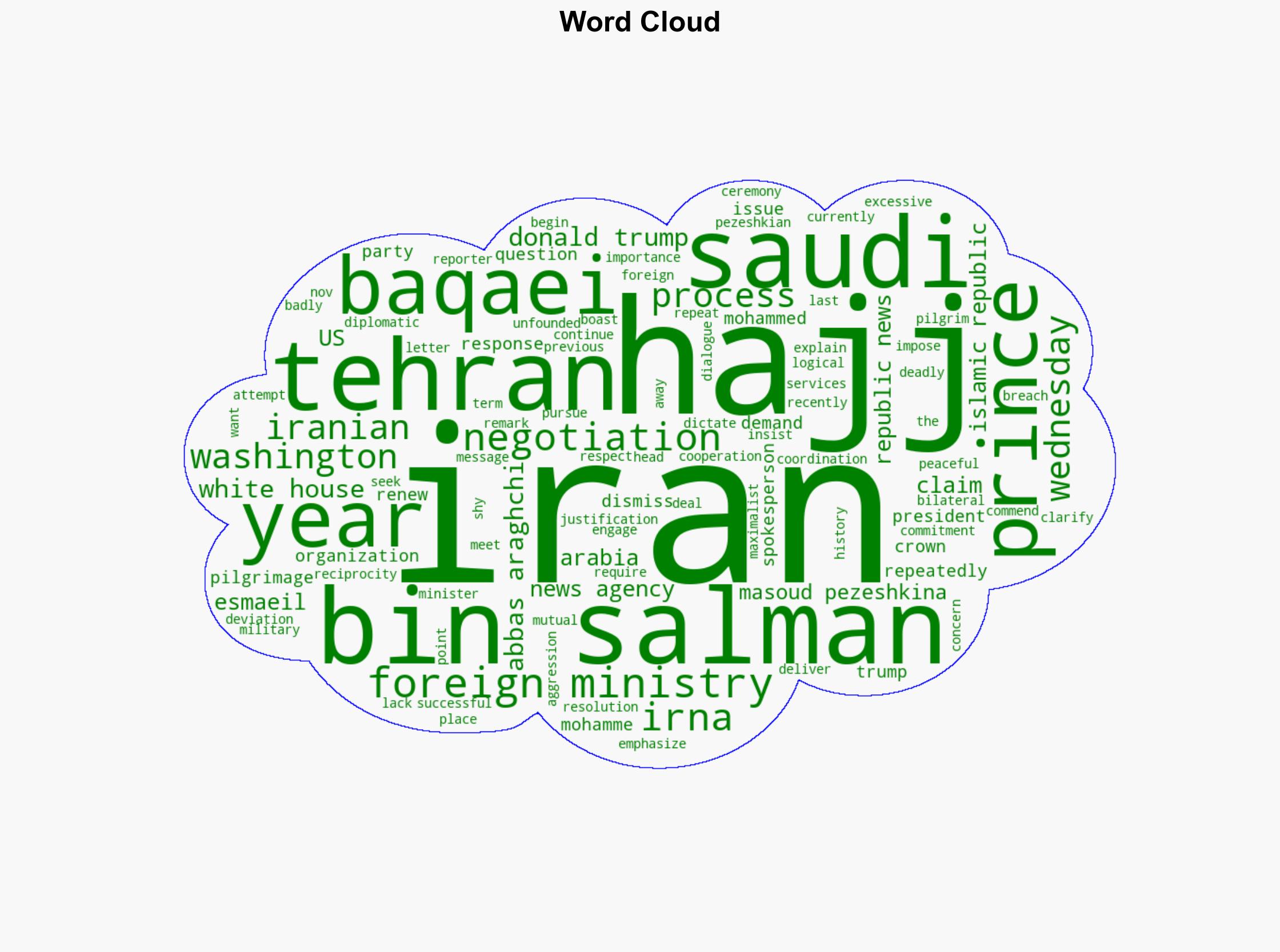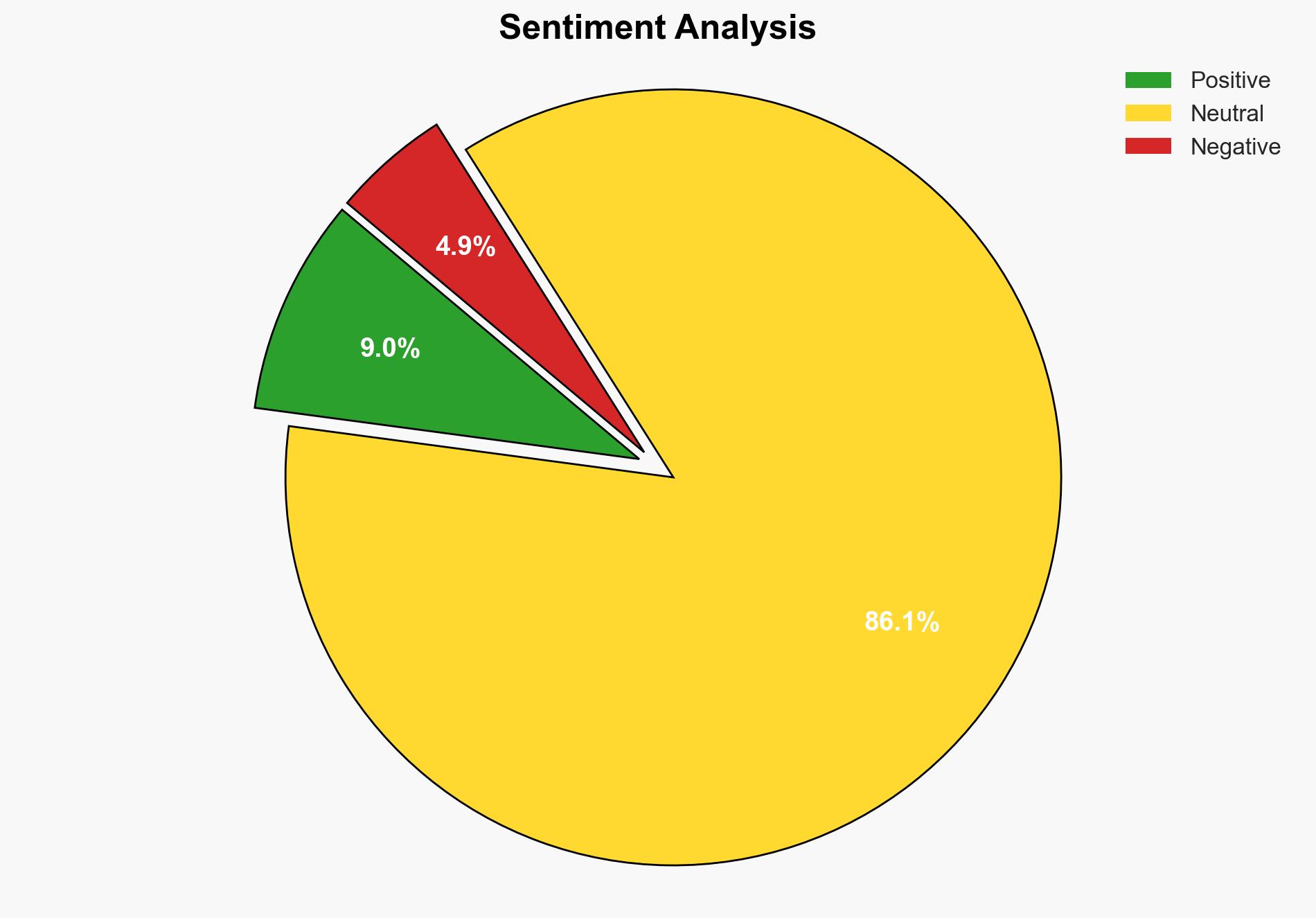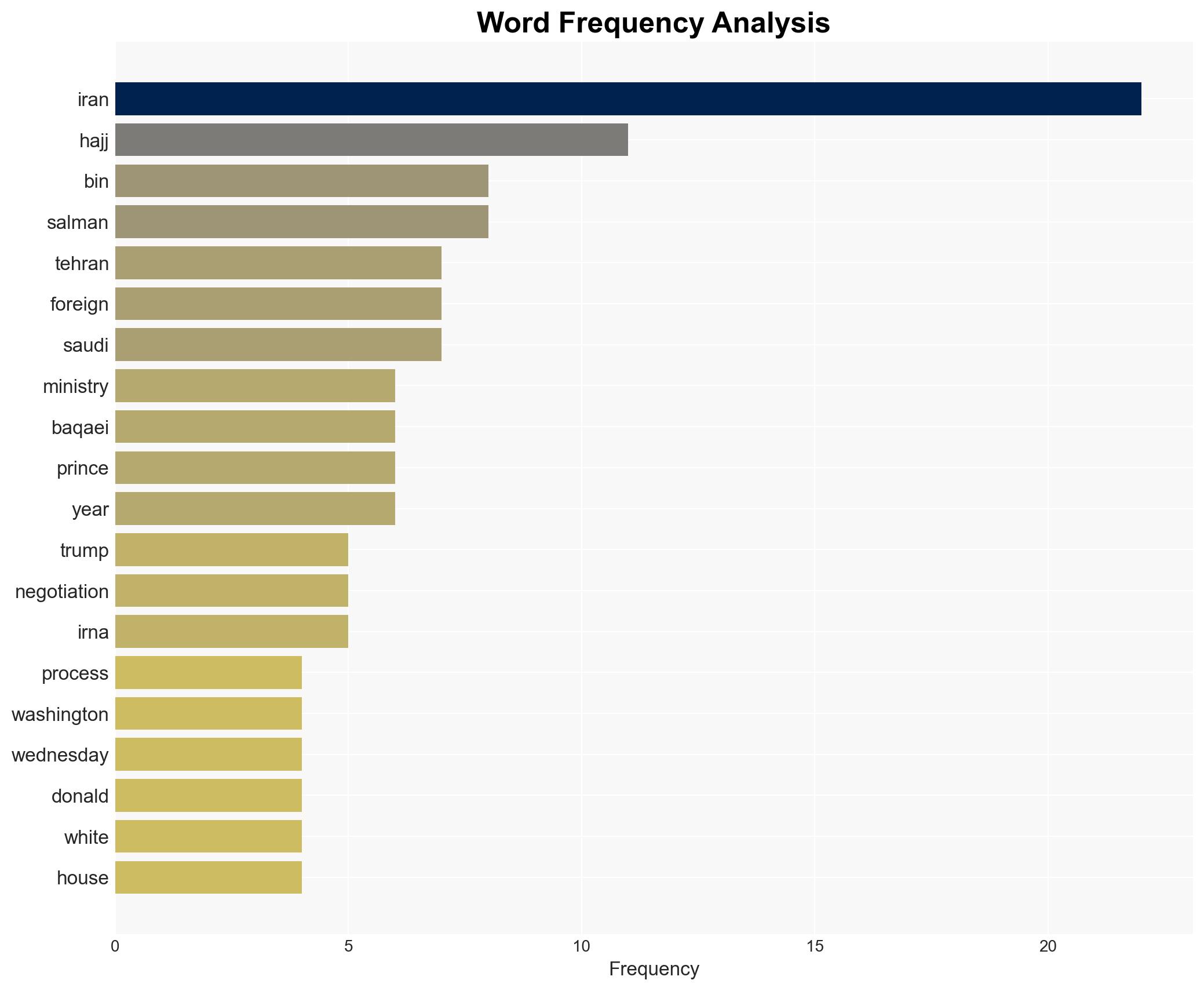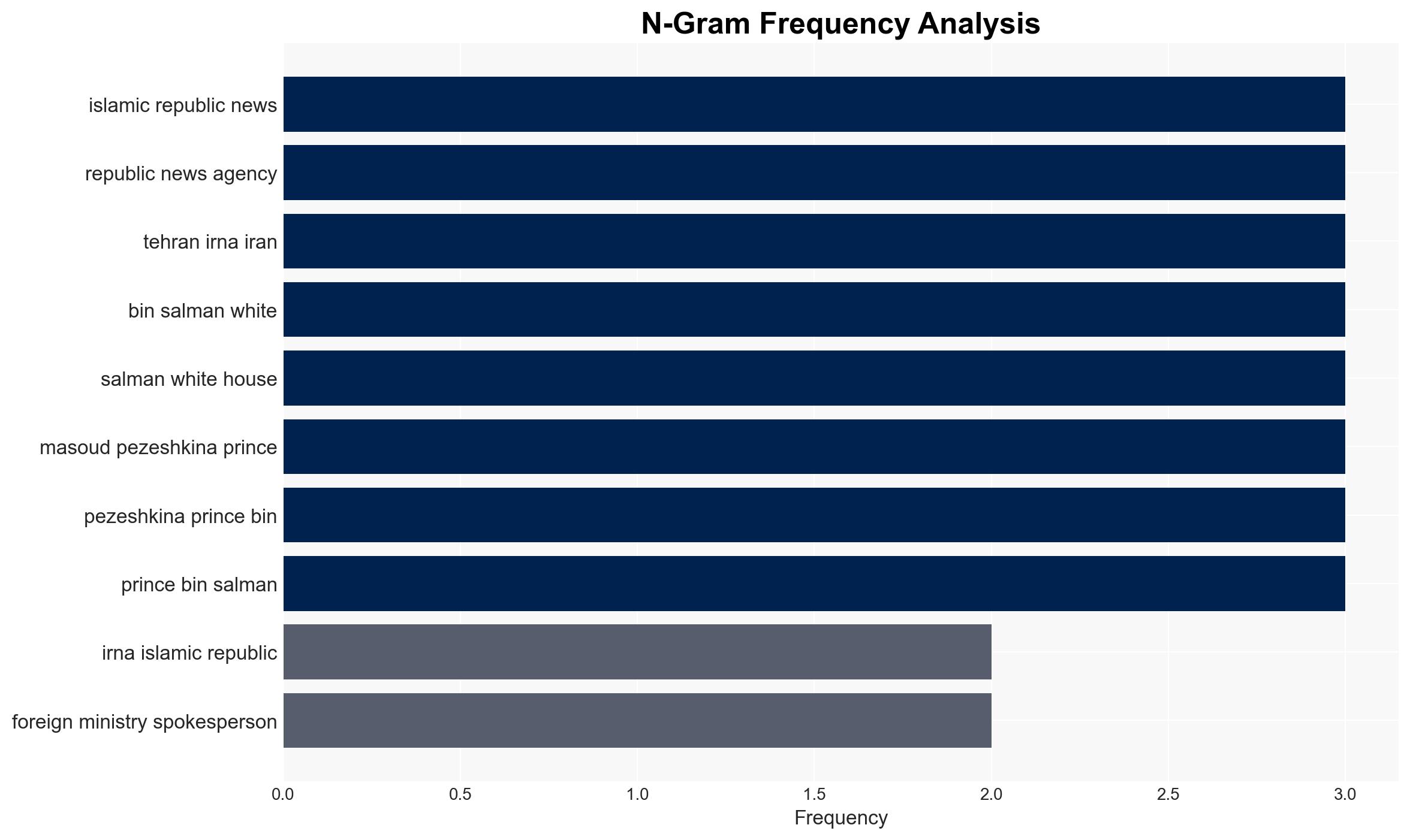Iran dismisses Trump’s claim about renewed negotiation process – Globalsecurity.org
Published on: 2025-11-20
AI-powered OSINT brief from verified open sources. Automated NLP signal extraction with human verification. See our Methodology and Why WorldWideWatchers.
Intelligence Report: Iran’s Dismissal of Trump’s Negotiation Claims
1. BLUF (Bottom Line Up Front)
With a moderate confidence level, the most supported hypothesis is that Iran’s dismissal of Trump’s claims is a strategic posture to maintain leverage in any potential future negotiations. The recommended action is to closely monitor diplomatic communications between Iran, the U.S., and Saudi Arabia for shifts in rhetoric or policy that could indicate a change in negotiation dynamics.
2. Competing Hypotheses
Hypothesis 1: Iran’s dismissal of Trump’s claims is a genuine reflection of their unwillingness to engage in negotiations due to past breaches of commitments by the U.S.
Hypothesis 2: Iran’s public dismissal is a strategic move to strengthen its negotiating position by projecting resilience and demanding mutual respect and reciprocity before engaging in any talks.
Hypothesis 2 is more likely given Iran’s historical negotiation tactics, which often involve public displays of defiance to maintain domestic and international leverage.
3. Key Assumptions and Red Flags
Assumptions: Iran’s statements are assumed to reflect its official policy stance. The U.S. is assumed to be interested in renewed negotiations.
Red Flags: Potential bias in Iranian state media reporting. The possibility of misinterpretation of diplomatic messages due to cultural differences.
Deception Indicators: Iran’s public statements may be intended to mislead international observers about its true intentions.
4. Implications and Strategic Risks
The primary risk is the potential for increased regional tensions if diplomatic efforts fail, leading to political and possibly military escalation. Economic sanctions could be tightened, further straining Iran’s economy and potentially provoking cyber or informational retaliation.
5. Recommendations and Outlook
- Continue intelligence gathering on diplomatic communications between Iran, the U.S., and Saudi Arabia.
- Engage in back-channel diplomacy to clarify intentions and reduce miscommunications.
- Best-case scenario: Iran and the U.S. reach a mutual understanding, leading to a phased negotiation process.
- Worst-case scenario: Breakdown in communications leads to increased sanctions and regional instability.
- Most-likely scenario: Continued public posturing by Iran with intermittent, informal diplomatic engagements.
6. Key Individuals and Entities
Esmaeil Baqaei (Iranian Foreign Ministry Spokesperson), Donald Trump (Former U.S. President), Mohammed bin Salman (Saudi Crown Prince), Abbas Araghchi (Iranian Foreign Minister), Masoud Pezeshkina (Iranian Official)
7. Thematic Tags
Regional Focus, Middle East, Diplomacy, U.S.-Iran Relations, Saudi Arabia, International Negotiations
Structured Analytic Techniques Applied
- Causal Layered Analysis (CLA): Analyze events across surface happenings, systems, worldviews, and myths.
- Cross-Impact Simulation: Model ripple effects across neighboring states, conflicts, or economic dependencies.
- Scenario Generation: Explore divergent futures under varying assumptions to identify plausible paths.
Explore more:
Regional Focus Briefs ·
Daily Summary ·
Support us





